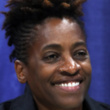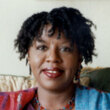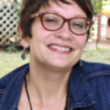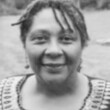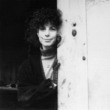The Wild Book
(Libby/OverDrive eBook, Kindle)
Available Platforms
Description
Also in this Series
Published Reviews
Booklist Review
Diagnosed as having word blindness, 11-year-old narrator Josefa, affectionately known as Fefa, struggles with reading and records her frustrations in this diary. Danger lurks in the 1912 Cuban countryside. Bandits rustle cattle and threaten to kidnap children. Her brother accidentally shoots himself, and the farm manager writes an ugly poem for Fefa that makes her feel uncomfortable. She eventually learns to read and triumphantly declares, I am surprised to discover / that I can no longer bear / the thought of an entire day / without the natural flow / of twining / vinelike words. Written in free verse and inspired by family stories, the slender narrative conveys the frustrations of dyslexia and captures the lush setting. On the minus side, Fefa's family members never emerge as distinct characters. Sprinkled with references to Cuban and Nicaraguan poetry, this lyrical glimpse of early twentieth-century Cuba will enrich multicultural studies.--Perkins, Linda Copyright 2010 Booklist
Publisher's Weekly Review
Based on the life of the author's grandmother, Engle's (Hurricane Dancers) novel-in-verse is told in the voice of Josefa, an 11-year-old living in the Cuban countryside in the early 20th century, following the war for independence from Spain and U.S. occupation of the island. It's a turbulent time, with roaming bandits kidnapping children for ransom, but Fefa (as she's called) is preoccupied with her "word blindness," what is now called dyslexia. To help Fefa overcome her struggle to read and write, her poetry-loving mother gives her the wild book of the title, a blank book in which Fefa can practice "taming" the letters and words that seem to wriggle away as she tries to read them. "Throw wildflower seeds/ all over each page," her mother suggests. "Let the words sprout/ like seedlings,/ then relax and watch/ as your wild diary/ grows." Fefa persists until her disability is under control, but the denouement, in which a poem written by an unwelcome suitor saves Fefa's family from harm, feels contrived. Engle's writing is customarily lovely, but the plot is too thin to leave much of an impression. Ages 10-14. (Mar.) (c) Copyright PWxyz, LLC. All rights reserved.
School Library Journal Review
Gr 5-9-This novel in verse is about a girl growing up with dyslexia in early 20th-century Cuba. Family love and the chaos that comes with large families are mixed with historical tidbits about Cuba after its wars for independence from Spain. Engle uses words sparingly and with grace: ".I love the way poetry/turns ordinary words/into winged things/that rise up/and soar!" In other poems, the protagonist's voice (based on Engle's grandmother) speaks of the struggles of learning to read and write with "word blindness," a term used to describe learning disabilities a century ago. While Fefa's great sadness over her inability to read is the primary focus, Engle includes rich cultural details and peeks into a time in which bandits roamed the countryside and children were often captured and held for ransom. Throughout all the drama, poetry is an integral part of daily life, in the play of children and the entertainment of adults, solace to Fefa in her struggle, and even as a means of expression by a kidnapper-poet. The idea of a wild book on which to let her words sprout is one that should speak to those with reading difficulties and to aspiring poets as well.-Wendy Smith-D'Arezzo, Loyola College, Baltimore, MD (c) Copyright 2012. Library Journals LLC, a wholly owned subsidiary of Media Source, Inc. No redistribution permitted.
Kirkus Book Review
(Historical fiction. 10-14)]] Copyright Kirkus Reviews, used with permission.
Booklist Reviews
Diagnosed as having "word blindness," 11-year-old narrator Josefa, affectionately known as Fefa, struggles with reading and records her frustrations in this diary. Danger lurks in the 1912 Cuban countryside. Bandits rustle cattle and threaten to kidnap children. Her brother accidentally shoots himself, and the farm manager writes an "ugly" poem for Fefa that makes her feel uncomfortable. She eventually learns to read and triumphantly declares, "I am surprised to discover / that I can no longer bear / the thought of an entire day / without the natural flow / of twining / vinelike words." Written in free verse and inspired by family stories, the slender narrative conveys the frustrations of dyslexia and captures the lush setting. On the minus side, Fefa's family members never emerge as distinct characters. Sprinkled with references to Cuban and Nicaraguan poetry, this lyrical glimpse of early twentieth-century Cuba will enrich multicultural studies. Copyright 2012 Booklist Reviews.
Publishers Weekly Reviews
Based on the life of the author's grandmother, Engle's (Hurricane Dancers) novel-in-verse is told in the voice of Josefa, an 11-year-old living in the Cuban countryside in the early 20th century, following the war for independence from Spain and U.S. occupation of the island. It's a turbulent time, with roaming bandits kidnapping children for ransom, but Fefa (as she's called) is preoccupied with her "word blindness," what is now called dyslexia. To help Fefa overcome her struggle to read and write, her poetry-loving mother gives her the wild book of the title, a blank book in which Fefa can practice "taming" the letters and words that seem to wriggle away as she tries to read them. "Throw wildflower seeds/ all over each page," her mother suggests. "Let the words sprout/ like seedlings,/ then relax and watch/ as your wild diary/ grows." Fefa persists until her disability is under control, but the denouement, in which a poem written by an unwelcome suitor saves Fefa's family from harm, feels contrived. Engle's writing is customarily lovely, but the plot is too thin to leave much of an impression. Ages 10–14. (Mar.)
[Page ]. Copyright 2012 PWxyz LLCSchool Library Journal Reviews
Gr 5–9—This novel in verse is about a girl growing up with dyslexia in early 20th-century Cuba. Family love and the chaos that comes with large families are mixed with historical tidbits about Cuba after its wars for independence from Spain. Engle uses words sparingly and with grace: "…I love the way poetry/turns ordinary words/into winged things/that rise up/and soar!" In other poems, the protagonist's voice (based on Engle's grandmother) speaks of the struggles of learning to read and write with "word blindness," a term used to describe learning disabilities a century ago. While Fefa's great sadness over her inability to read is the primary focus, Engle includes rich cultural details and peeks into a time in which bandits roamed the countryside and children were often captured and held for ransom. Throughout all the drama, poetry is an integral part of daily life, in the play of children and the entertainment of adults, solace to Fefa in her struggle, and even as a means of expression by a kidnapper-poet. The idea of a wild book on which to let her words sprout is one that should speak to those with reading difficulties and to aspiring poets as well.—Wendy Smith-D'Arezzo, Loyola College, Baltimore, MD
[Page 154]. (c) Copyright 2012. Library Journals LLC, a wholly owned subsidiary of Media Source, Inc. No redistribution permitted.Reviews from GoodReads
Citations
Engle, M. (2012). The Wild Book . HarperCollins.
Chicago / Turabian - Author Date Citation, 17th Edition (style guide)Engle, Margarita. 2012. The Wild Book. HarperCollins.
Chicago / Turabian - Humanities (Notes and Bibliography) Citation, 17th Edition (style guide)Engle, Margarita. The Wild Book HarperCollins, 2012.
Harvard Citation (style guide)Engle, M. (2012). The wild book. HarperCollins.
MLA Citation, 9th Edition (style guide)Engle, Margarita. The Wild Book HarperCollins, 2012.
Copy Details
| Collection | Owned | Available | Number of Holds |
|---|---|---|---|
| Libby | 1 | 1 | 0 |



























